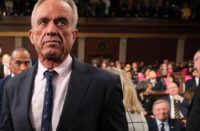Donald Trump has made a promise to cut down on unnecessary federal expenditure. He has appointed two billionaires, Elon Musk, CEO of Tesla, and businessman Vivek Ramaswamy, to lead this effort, named the Department of Government Efficiency (DOGE). The news has sparked a series of questions regarding the authority of Musk and Ramaswamy to implement changes to federal spending, considering such power typically lies with Congress.
This announcement follows Trump’s second term victory as President, where voters expressed discontent with the economic state under the Biden administration. Trump had pledged to cut down government expenditure in his campaign promises. Musk’s current status on the social media platform “X”, which he purchased in 2022, now states, “The people voted for major government reform.”
Elaine Kamarck, a senior fellow in governance studies at the Brookings Institution, voiced her doubts about Musk and Ramaswamy’s task, particularly after recent claims by Musk of potentially finding more than $2 trillion in savings – nearly a third of the federal government’s annual spending of $6.7 trillion.
The Department of Government Efficiency, as described by Trump, aims to “slash excess regulations, cut wasteful expenditures, and restructure Federal Agencies.” The deadline for Musk and Ramaswamy’s work is July 4, 2026, the 250th anniversary of the Declaration of Independence. However, details about staffing and funding of the initiative have not been disclosed.
Musk, known for his cost-cutting strategies at his own companies, has previously expressed his views on the U.S. government as being bloated and unsustainable. He aims to reduce federal agencies to 99 from over 400.
Ramaswamy, with a net worth of about $1 billion according to Forbes, exited the presidential race in January after running an “anti-woke” campaign. He also advocates for government cuts by eliminating the Department of Education, a goal shared by President-elect Trump.
Despite the bold claims and plans, experts remain skeptical about the viability of Musk’s efficiency plans and potential conflicts of interest, considering his companies’ existing contracts with the federal government.





